Abstract
Nocardia 107-332, a soil isolate, oxidizes short-chain alkyl-substituted cyclic hydrocarbons to cyclic acids while growing on n-alkanes. Cyclic acids are produced also from relatively long-chain alkyl-substituted cyclics such as n-nonylbenzene or n-dodecylbenzene which alone support growth in a mineral-salts medium. ω-Oxidation of the alkyl substituents is followed by β-oxidation. It is of particular interest that cyclic acids such as cyclohexaneacetic and phenylacetic with C2 residual carboxylic acid substituents are resistant to further oxidation by the nocardia but cyclic acids with C1 or C3 substituents are readily oxidized and utilized for growth.
The specificity of microbial oxidations is demonstrated by the conversion of p-isopropyltoluene (p-cymene) to p-isopropylbenzoic acid in n-alkane, growth-supported nocardia cultures.
Full text
PDF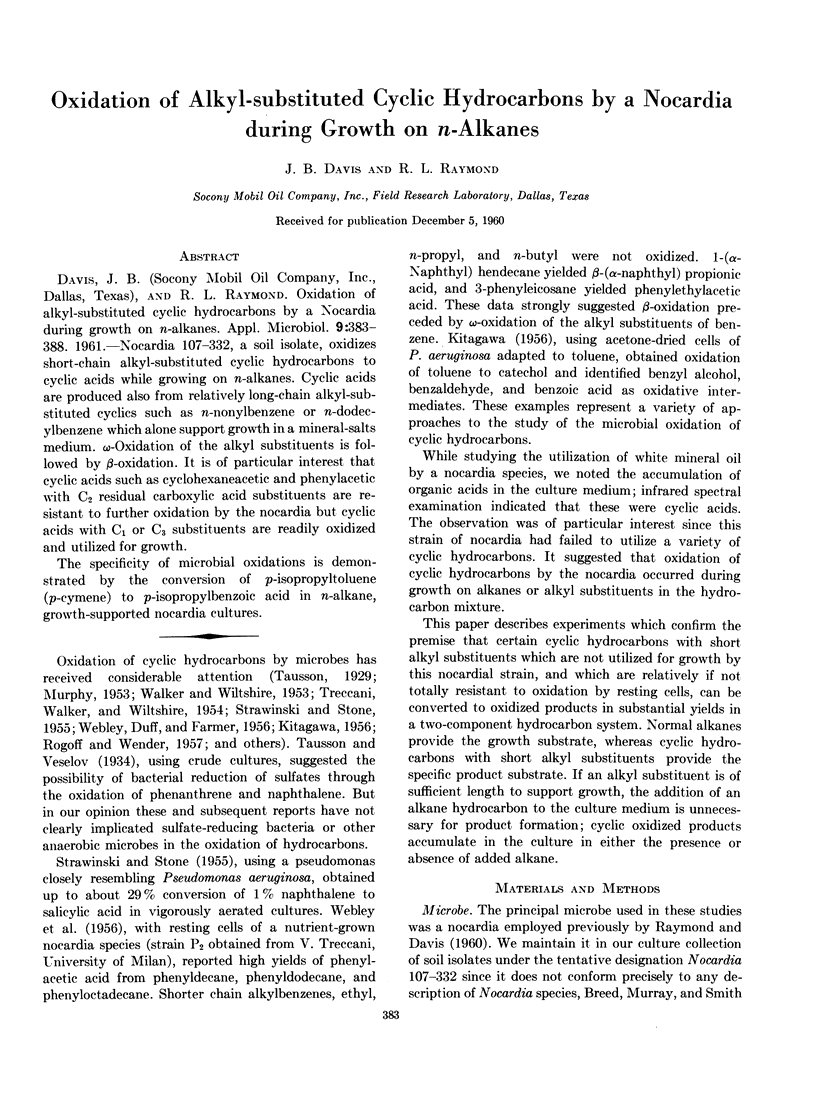
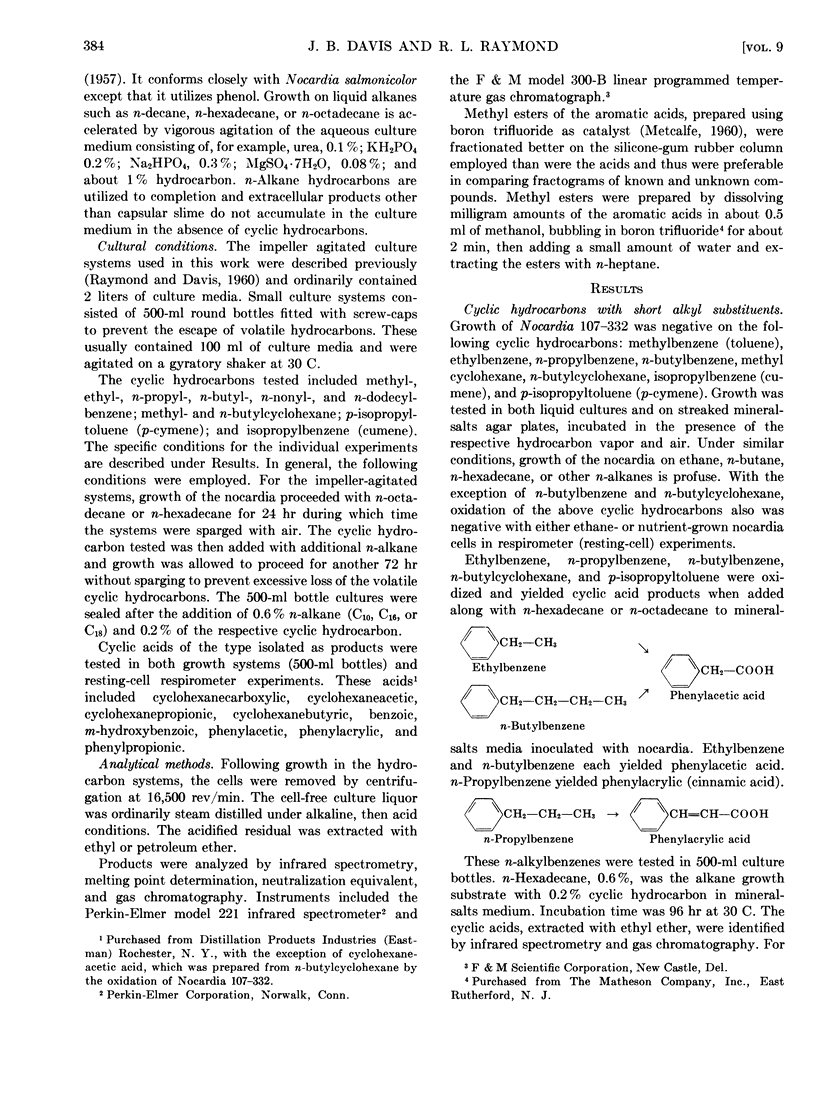
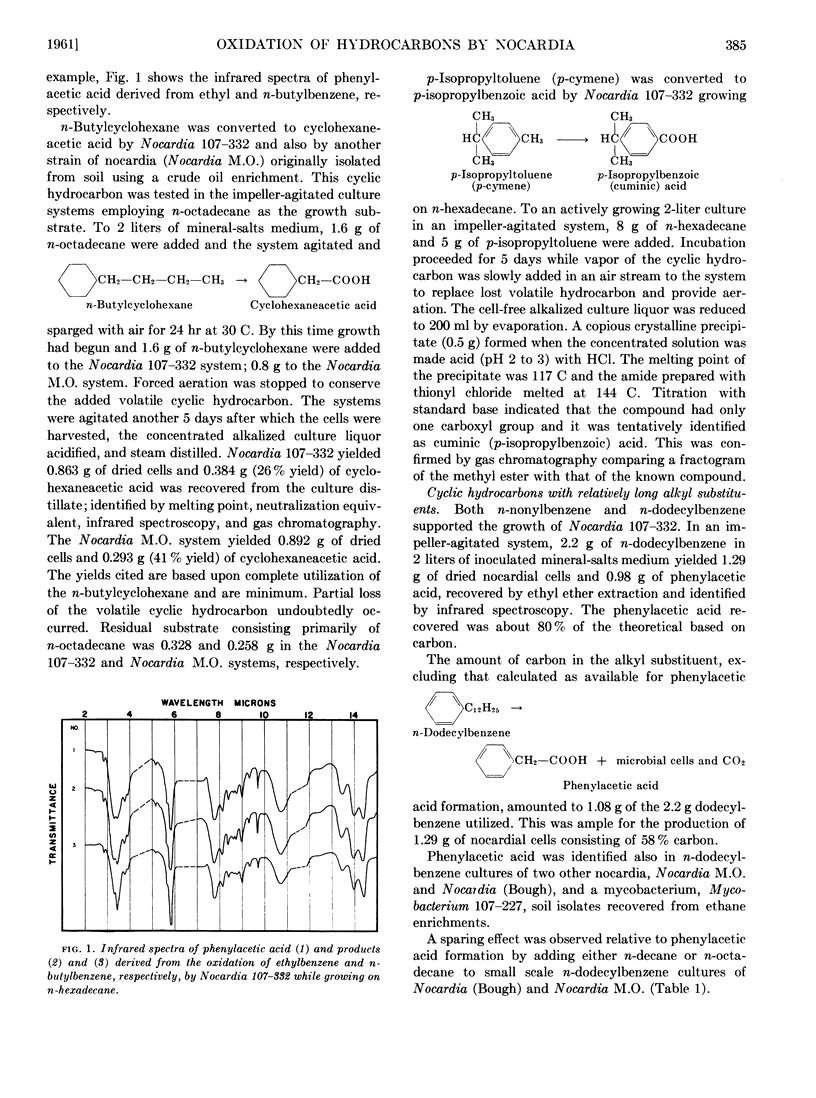
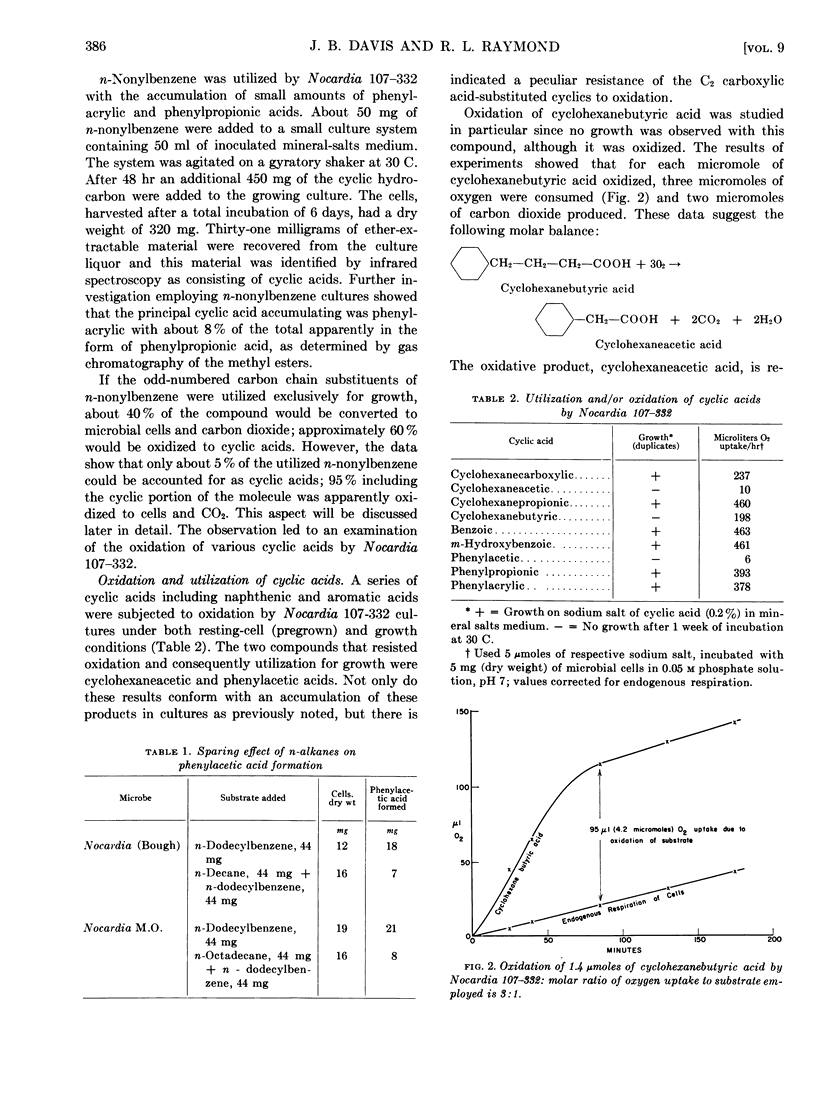
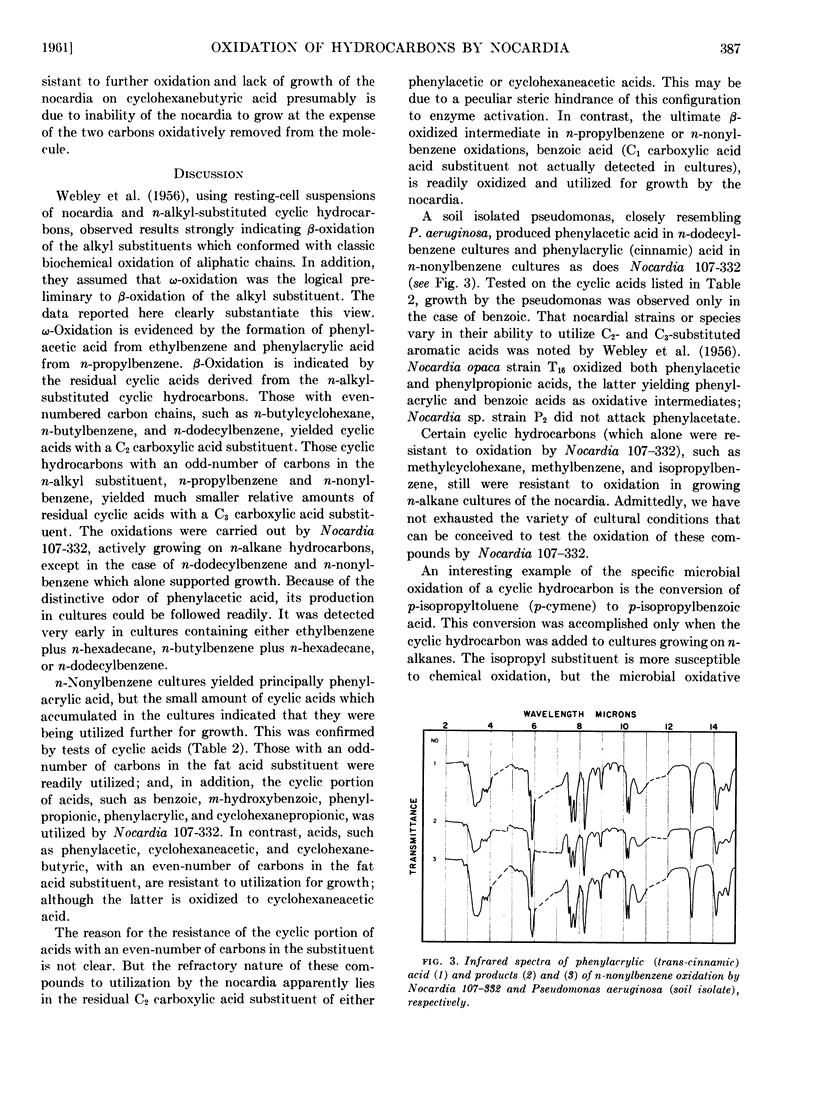
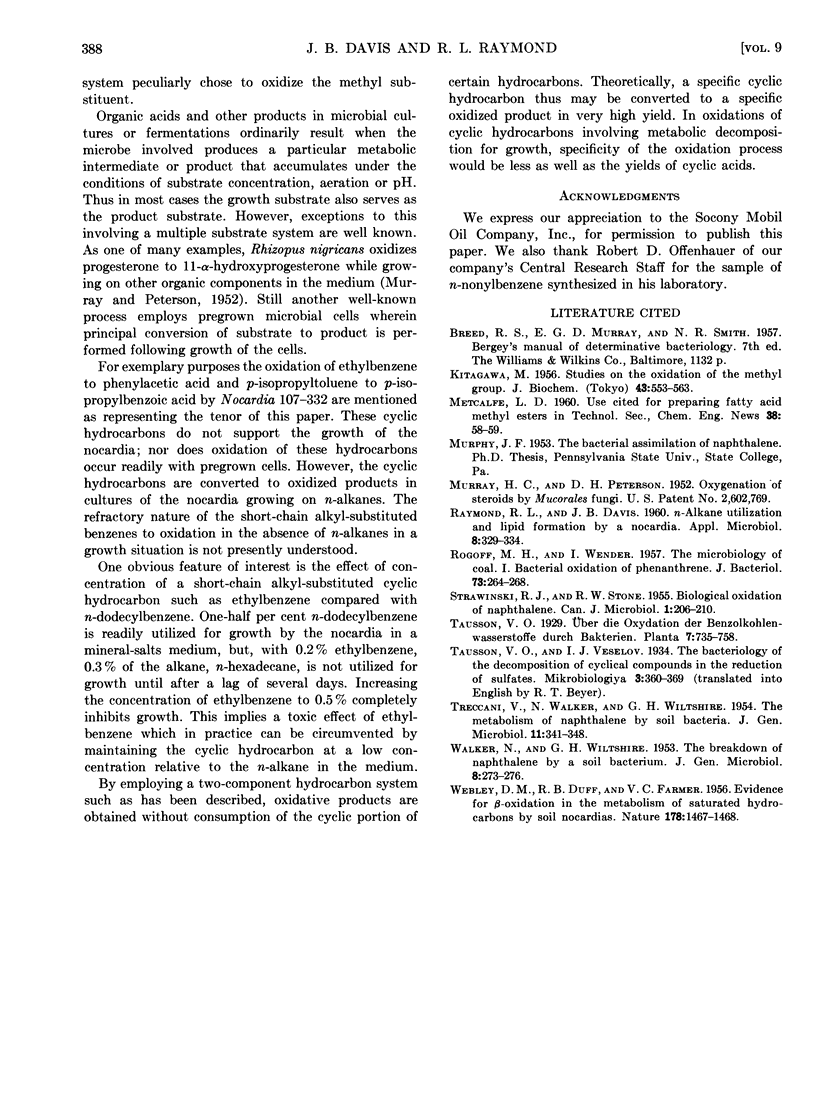
Selected References
These references are in PubMed. This may not be the complete list of references from this article.
- EL-BAGOURY S., FLETCHER S., MORRISON R. B. Effect of chloramphenicol in maintaining the viability of Escherichia coli. Nature. 1956 Dec 29;178(4548):1467–1467. doi: 10.1038/1781467a0. [DOI] [PubMed] [Google Scholar]
- RAYMOND R. L., DAVIS J. B. n-Alkane utilization and lipid formation by a Nocardia. Appl Microbiol. 1960 Nov;8:329–334. doi: 10.1128/am.8.6.329-334.1960. [DOI] [PMC free article] [PubMed] [Google Scholar]
- ROGOFF M. H., WENDER I. The microbiology of coal. I. Bacterial oxidation of phenanthrene. J Bacteriol. 1957 Feb;73(2):264–268. doi: 10.1128/jb.73.2.264-268.1957. [DOI] [PMC free article] [PubMed] [Google Scholar]
- STRAWINSKI R. J., STONE R. W. Biological oxidation of naphthalene. Can J Microbiol. 1954 Dec;1(3):206–210. doi: 10.1139/m55-027. [DOI] [PubMed] [Google Scholar]
- TRECCANI V., WALKER N., WILTSHIRE G. H. The metabolism of naphthalene by soil bacteria. J Gen Microbiol. 1954 Dec;11(3):341–348. doi: 10.1099/00221287-11-3-341. [DOI] [PubMed] [Google Scholar]
- WALKER N., WILTSHIRE G. H. The breakdown of naphthalene by a soil bacterium. J Gen Microbiol. 1953 Apr;8(2):273–276. doi: 10.1099/00221287-8-2-273. [DOI] [PubMed] [Google Scholar]


